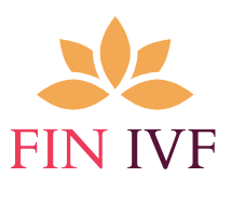

Ovulation Induction
Ovulation induction (OI) is a fertility treatment that uses medication to stimulate ovulation and the likelihood of an egg in that cycle.
What is ovulation induction treatment?
Ovulation induction (OI) is a hormone-based fertility treatment that uses medication to stimulate ovulation for people who have ovulation irregularities (oligoovulation) or anovulation, where they are not ovulating or releasing an egg.
Ovulation occurs when an ovary releases an egg ready for it to be fertilised. Normal ovulation typically occurs once a month, around 14 days into each menstrual cycle. If not fertilised, the mature egg and uterine line will be broken down and leave the body via a period bleed which will follow approximately 14 days later.
For some people who have ovarian failure, irregular periods or no periods, conception can be more challenging. Ovulation disorders are the leading cause of female infertility, responsible for 25% of all female infertility cases.
The goal of ovulation induction is to improve ovulation patterns or increase the number of mature eggs released each month to increase the chances of conception through sexual intercourse or intrauterine insemination.
Who is ovulation induction best for?
Ovulation induction is a promising treatment option for individuals who ovulate irregularly or do not ovulate at all. However, fertility drugs are also the main treatment used for people with Polycystic Ovary Syndrome (PCOS), hormonal imbalances and other underlying fertility problems.
Women with PCOS (Polycystic Ovary Syndrome)
PCOS is a common hormonal disorder that can lead to irregular ovulation or no ovulation at all, making conception difficult. It also causes higher levels of androgen in the body, which is often characterised by excess facial or body hair, as well as the ovaries to become enlarged.
Ovulation induction helps by stimulating the ovaries to release eggs, significantly improving the chances of pregnancy. For women with PCOS, this is often a first-line treatment to regulate their cycles and support natural conception.
Irregular periods or no periods
Irregular or absent periods can signal an ovulation issue. Ovulation induction can help by reestablishing a regular cycle, ensuring that ovulation occurs at a predictable time. This greatly increases the chance of pregnancy for those who may not ovulate consistently on their own.
Hormonal imbalances in men or women
Hormonal imbalances, such as low oestrogen or progesterone in women, or low testosterone in men, can impact reproductive function. Ovulation induction medications work by correcting these hormonal disruptions, stimulating normal reproductive processes in women, and in some cases, improving sperm production in men when paired with other treatments.
For men who have low motility in sperm or small numbers of sperm
If there is a reduced number of sperm in the semen, or the sperm present do not move in the way that they should, this can drastically hinder the chances of conceiving, both through sexual intercourse and IUI. However, there are medications used for ovulation induction, such as clomiphene citrate, that can also be used to increase sperm concentrations and motility.
What is anovulation?
If you suffer from irregular periods or absence of regular periods, this is defined as anovulation. Blood tests to check thyroid, prolactin and progesterone levels can also indicate anovulation or hormone imbalances. Sperm tests done at home or in a clinic test the sperm quality and quantity.
What medication is used during ovulation induction?
The most common fertility drugs used for ovulation induction are either the hormone medications Clomifene (Clomid) or Letrozole (Femara). These are taken as tablets between days 2 and 6 of your cycle. If your body doesn’t respond to the tablets, then the next step may be to have medication injections of gonadotrophins to stimulate the ovaries.
How does ovulation induction work?
The medications contain hormones identical to the ones in your body stimulate the growth of follicles in the ovaries to produce eggs. The stimulated cycle is monitored by blood tests and ultrasound scans and advice on when is the best time to have intercourse or potentially IUI.
Are there any risks during ovulation induction?
There can be a risk of developing too many follicles which can lead to having multiples (twins, triplets etc). There are increased risks with multiples pregnancies.
Why choose FIN IVF
Fertility tests and treatments that works to make your life easier, not harder.


At home appointments
No need to book time off of work or stretch about your schedule.


All inclusive costs
Packaged costs that include everything. No hidden costs.


Next gen clinic
Our clinic pairs fertility experts with cutting edge technology.
© 2024. All rights reserved




